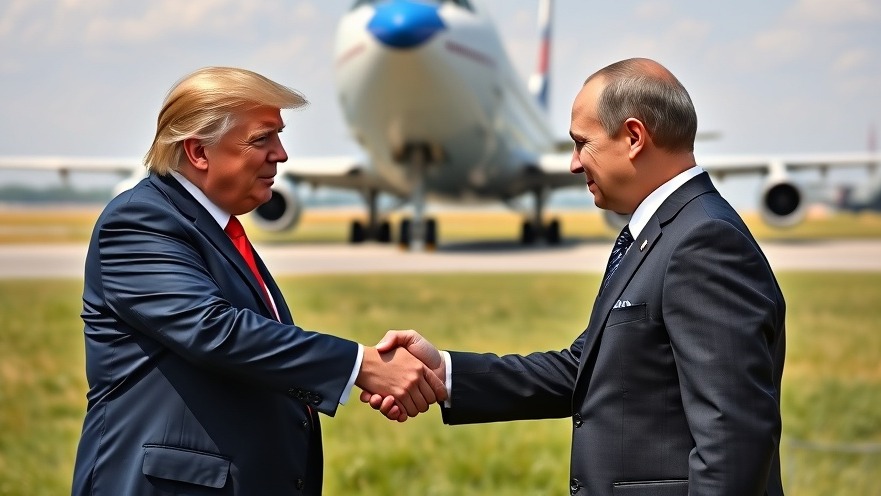
Trump’s Direct Insights from the Putin Summit
In a recent interview with Sean Hannity, former President Donald Trump opened up about his striking takeaways from a high-stakes summit with Vladimir Putin. Contrary to the expectation of a hush-hush affair, Trump provided a rare glimpse into conversations that could shape U.S.-Russia relations moving forward. His remarks highlighted key elements of their discussions, underscoring the implications for national security and international diplomacy.
The Context of Their Meeting
Trump described the summit as essential in addressing the escalating tensions following the Ukraine conflict. He remarked that the situation under President Biden has deteriorated significantly, contributing to a precarious geopolitical landscape. ‘Had I been in office, this war would have never happened,’ Trump declared, suggesting that his administration’s approach could have been a stabilizing factor in Eastern Europe.
Insights into Putin’s Objectives
During the interview, Trump relayed Putin’s motivations, interpreting them as clear yet complex. He mentioned that Putin presented a sort of ‘business pitch’—a mix of threats and opportunities aimed at negotiating power. This perspective draws attention to the nuances of diplomatic negotiations where strength plays a pivotal role. Analysts suggest that understanding Putin’s goals could offer U.S. officials a roadmap for future engagements.
International Reactions and the Broader Fallout
The reception to Trump’s insights has been mixed. Some Republicans praise his clear articulation of the issues at stake, asserting it reflects a proactive stance in international relations. Conversely, Democrats and pundits raise concerns that aligning too closely with Putin could undermine U.S. interests. Questions abound about the implications for NATO and the need for a cohesive Western strategy regarding Russia.
What This Means for Future Diplomacy
This summit and Trump’s varied interpretations of it serve as critical fodder for discussions on international diplomacy moving forward. With the 2024 elections approaching, how candidates navigate the complex history and current affairs with Russia will significantly impact their platforms and voter reception. Trump’s assertions push the narrative towards a hard stance on foreign policy that resonates with a segment of the electorate seeking strength and clarity.
Counterarguments: A Divided Perspective
While Trump posits a strong case for his past methods of handling Putin, international relations experts warn against oversimplifying this dynamic. Many argue that the global landscape is far more intricate than bilateral meetings suggest. For instance, relying solely on past successes may ignore the lessons learned from past negotiations where both sides held conflicting interests.
Concluding Thoughts: The Importance of Continuous Dialogue
The interactions between the two leaders reflect the essential reality of diplomatic engagement: it is as much about conversation as it is about conflict. Adopting an open line of communication, even amidst disagreements, may prove vital for future negotiations. Understanding these dynamics can help citizens engage more meaningfully with ongoing international news and foster discussions about U.S. leadership roles in a complex world.
As we reflect on Trump’s insights from the Putin summit, it’s clear that these conversations are not just political posturing but pivotal moments that can reshape relationships on the global stage. Engage with the ongoing dynamics of U.S.-Russia relations and consider how these developments might affect national security discussions in the coming months.
 Add Element
Add Element  Add Row
Add Row 



Write A Comment